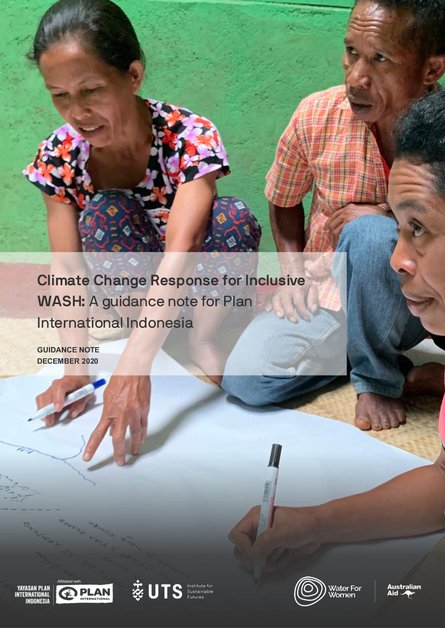
Climate change is leading to water stress and insecurity, threatening the sustainability of WASH services across the Asia-Pacific. Changes in the frequency, intensity, duration, and distribution of rainfall, extreme temperature, and extreme weather events, along with rising sea levels, can directly disrupt water, sanitation and hygiene (WASH) services in a multitude of ways including through:
- Reduced water availability;
- Increased water demand;
- Increased water contamination from sanitation and other pollutants;
- Damage to WASH infrastructure;
- Degraded physical access to WASH facilities; and
- Groundwater salinisation;
Climate change affects different parts of the community in different ways. In many situations, climate change impacts on WASH are more likely to disproportionately affect women and people with disabilities. When women are primary managers of water and carers of children and other dependent people, they may take on the greater WASH workload resulting from climate hazards. When women and people with disabilities have relatively lower social and legal status and hold less political power within a community, this limits their influence on decisions about how families and communities should respond to maintain WASH access against climate change impacts.
Women have knowledge about and experience in responding to climate change impacts on WASH, including from roles in households and communities as WASH managers. It is important to provide spaces for women’s voices on these issues to be heard. Supporting women and people with disabilities to address the differential impacts of climate change through addressing social inequality is critical for enabling inclusive WASH.
The Institute for Sustainable Futures at the University of Technology Sydney (ISF-UTS) is partnering with civil society organisations (CSOs) Plan International in Indonesia (YPII), Plan International Australia (PIA), WaterAid Timor-Leste and WaterAid Australia to conduct research to inform how the CSOs address the impacts of climate change on their Water for Women projects.